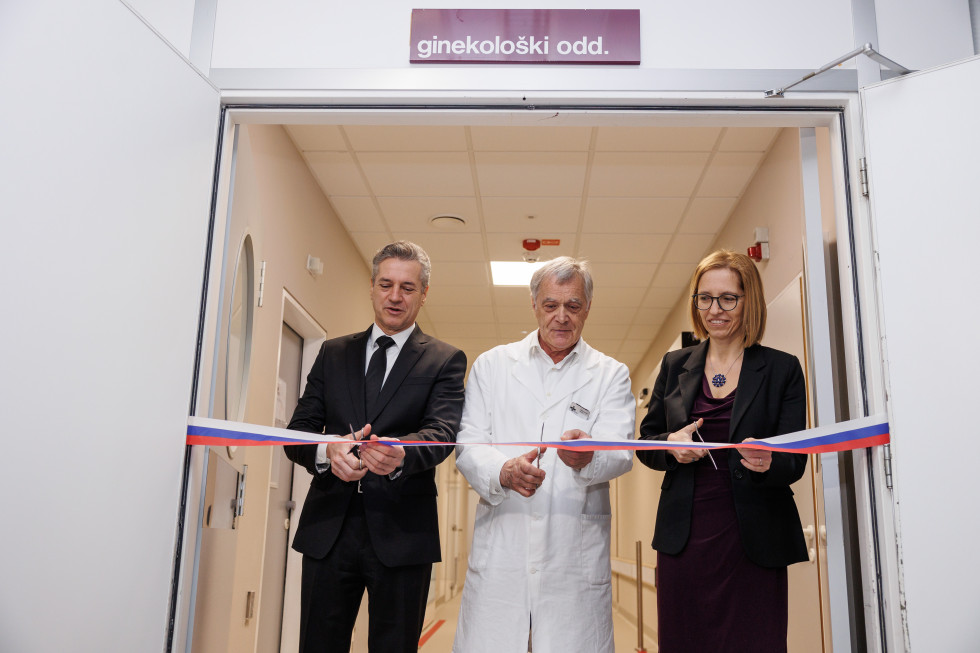Reproductive healthcare is one of the most important branches of healthcare
The Postojna Hospital opened converted premises for fertilisation procedures with biomedical assistance. More than two hundred square metres of premises have been newly arranged and equipped with special incubators and other technical, medical, gynaecological and protective laboratory equipment. The cost of the investment was approximately EUR 1.3 million. With this renovation, Slovenia now has three fully functioning concession-based centres for biomedically-assisted fertilisation (in addition to Postojna, the Ljubljana University Medical Centre and the Maribor University Medical Centre.
"I am very glad that we have a third fully functioning centre for biomedically assisted fertilisation in Slovenia. It is beyond doubt that this helps couples who have problems with infertility," said the Minister and congratulated the hospital's director, Aleksander Merlo, and all the staff.
On the occasion of the opening, the Prime Minister said: "I believe that the state is, in a way, obliged to provide help to all couples who need medical assistance with conception and creating a family. I am convinced that this Centre, which is part of one of the best maternity hospitals in Slovenia, will successfully fulfil its mission." He also pointed out that the Postojna maternity hospital could be an example to many, both in terms of professionalism and relationships. "The respectful relationships among all staff, including the nursing and medical staff, nursing assistants and doctors, is an outstanding example. I hope that its example will inspire other medical institutions throughout Slovenia."
The Minister stressed that reproductive healthcare is one of the most important branches of healthcare in every country. Changes in lifestyle, values and goals and, of course, the conditions that affect our decisions about when to start a family also affect the number of births. Given the downward trend in births in Slovenia, where data show that the number of births has dropped by more than fifteen percent in the last decade, it is all the more important that the country ensures the possibility of conception also with the help of biomedicine, stressed the Minister.
According to data from the National Institute of Public Health, about one thousand children conceived with the help of artificial insemination are born each year in Slovenia, which is more than five percent of all children born in the country. Biomedically assisted fertilisation has become an invaluable tool for couples facing the challenges of infertility. At the same time it is crucial that these couples have access to top-quality healthcare and support. "The arrangement of premises and the provision of equipment for carrying out biomedically assisted insemination procedures ensure adequate access to reliable and safe insemination procedures. The Ministry of Health will continue to strive for improvements and updates in the field of reproductive health and support for families on their path to parenthood," concluded Minister Prevolnik Rupel.


